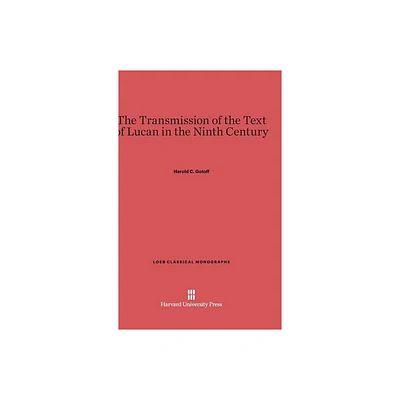Home
Hungary: From Ninth Century Origins to the 1956 Uprising
Loading Inventory...
Barnes and Noble
Hungary: From Ninth Century Origins to the 1956 Uprising
Current price: $180.00


Barnes and Noble
Hungary: From Ninth Century Origins to the 1956 Uprising
Current price: $180.00
Loading Inventory...
Size: Hardcover
*Product Information may vary - to confirm product availability, pricing, and additional information please contact Barnes and Noble
After the Hungarian Revolution in November 1956, the entire world became aware of the Hungarians--the independent people who defied the might of Soviet Russia in defense of their national freedom and traditions. However, though Hungary was acknowledged for centuries as the bulwark of Europe and Christianity against the East, the lively history of the country and its people has otherwise been unfamiliar to Westerners. Written by C. A. Macartney who is long recognized as an authority in the Western world on the history of Hungary and who has been personally familiar with Hungarian problems of the past few decades, this book introduces Hungary to a Western audience.
Few know that the revolution of 1956 is characteristic of many other struggles in the 1,000 years of the nation's past. Few know that the name of Hungary has been coupled with the word of freedom in many crucial moments of Western history. This unfamiliarity results partly because Hungary lies in a remote and seldom-visited quarter of Europe, but also because its language is strange and difficult, not of familiar European origin. Most of the material heretofore available on the history of Hungary has come to readers through the distorting media of foreign languages and foreign sympathies.
Macartney tells the story tersely, combining a superbly readable and exciting style with meticulous scholarship, while displaying an unusual sense for narrative and acute perception into character. The book contains thirty-nine illustrations of people, places, and objects that further illuminate the text. From Arpbd, who in the ninth century led the nomad Magyars out of a desperate crisis in the east and into the Danube Basin, to the ill-fated revolution of 1956 and Janos Kadar and the "People's Republic," this is the fascinating history of a great country and a people resistant to tyranny and invasion.
Few know that the revolution of 1956 is characteristic of many other struggles in the 1,000 years of the nation's past. Few know that the name of Hungary has been coupled with the word of freedom in many crucial moments of Western history. This unfamiliarity results partly because Hungary lies in a remote and seldom-visited quarter of Europe, but also because its language is strange and difficult, not of familiar European origin. Most of the material heretofore available on the history of Hungary has come to readers through the distorting media of foreign languages and foreign sympathies.
Macartney tells the story tersely, combining a superbly readable and exciting style with meticulous scholarship, while displaying an unusual sense for narrative and acute perception into character. The book contains thirty-nine illustrations of people, places, and objects that further illuminate the text. From Arpbd, who in the ninth century led the nomad Magyars out of a desperate crisis in the east and into the Danube Basin, to the ill-fated revolution of 1956 and Janos Kadar and the "People's Republic," this is the fascinating history of a great country and a people resistant to tyranny and invasion.


















